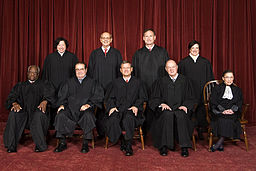Earlier this month the Supreme Court found that the government is able to take DNA samples from suspects arrested under suspicion of a violent crime. The decision was split, 5-4, in favor of law enforcement officials.
The Supreme Court deliberated over the constitutionality of a Maryland law that required people arrested for violent crimes to provide a DNA swab to the police. The majority upheld the law under the belief that DNA has the potential to act as the 21st century equivalent of fingerprinting and can help police identify criminals with aliases or even solve cold cases.
Those who dissented argued that collecting DNA is not really the same as fingerprinting background checks because the former is specifically aimed at solving cold cases, rather than identifying and processing suspects. The majority, however, argued that in the future it is highly possible that DNA will be used as identification purposes, thanks to the rapid advance of technology.
Furthermore, the majority clarified that the DNA will only be used to collect information that indicates a person’s identity and will not contain a person’s entire genome, which will uphold an individual’s right to privacy.

